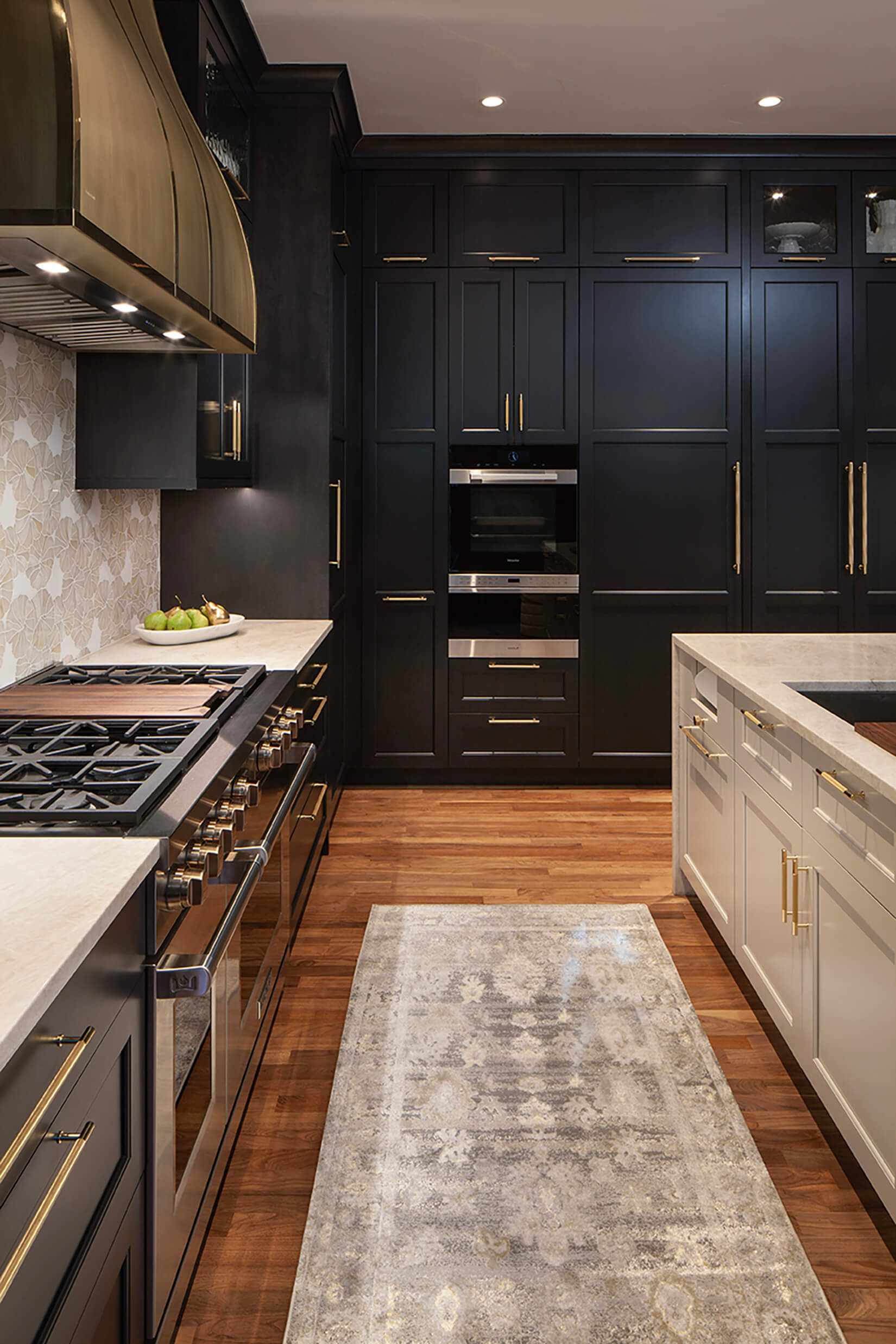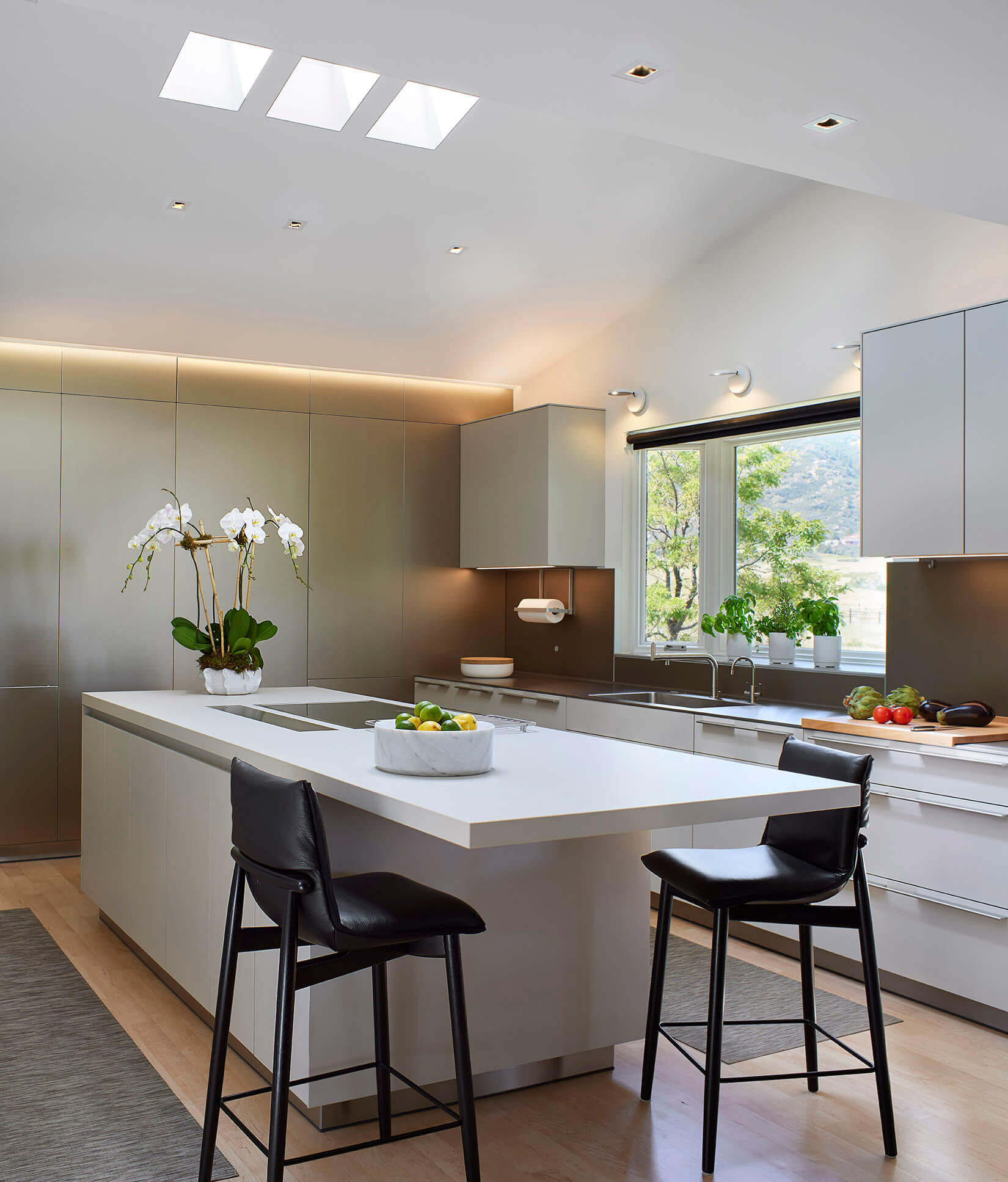Sustainable kitchen design is about more than just aesthetics; it involves a holistic approach that encompasses the use of eco-friendly materials, energy-efficient appliances, and thoughtful design practices.
This comprehensive guide explores the various aspects of sustainable kitchen design, providing insights into how you can create a kitchen that not only looks good but also contributes positively to the environment. From the choice of materials and appliances to lighting and decor, every element is crucial in crafting a space that aligns with the principles of sustainability.
What Is Sustainable Kitchen Design
Sustainable kitchen design refers to creating kitchen spaces that are environmentally friendly, energy-efficient, and mindful of resource usage. It involves considering the entire lifecycle of the kitchen, from the materials used in its construction to the appliances and practices employed in its daily use. The goal is to minimize the environmental impact while maintaining functionality and aesthetics.
Materials Matter
When it comes to sustainable kitchen design, selecting materials that are eco-friendly, durable, and responsibly sourced is crucial.
Here’s a list of some good materials to consider:
Silestone HybriQ: This blend of minerals and recycled materials, which is used to make strong, durable countertops and surfaces, uses 100% renewable energy and recycled water.
Bamboo: Bamboo is a highly sustainable material due to its fast growth rate and renewability. It’s a popular choice for flooring, cabinetry, and even countertops.
Reclaimed Wood: Using reclaimed or recycled wood reduces the demand for new timber. It’s ideal for cabinets, shelves, and countertops, and adds a unique aesthetic with its aged character.
Recycled Glass: Recycled glass can be used for countertops and backsplashes. It’s durable, easy to clean, and available in various colors and patterns.
Recycled Metal: Using recycled aluminum or stainless steel for hardware or backsplashes is a sustainable choice. These materials can often be recycled indefinitely without losing quality.
Cork: Cork is a renewable material harvested from the bark of cork oak trees without harming the tree. It’s a good option for flooring as it’s naturally antimicrobial and provides insulation.
Paper Composite: Made from applying heat and pressure to recycled paper and non-toxic resins, paper composite is a durable and lightweight option for countertops.
Linoleum: True linoleum is made from natural materials like linseed oil, cork dust, and wood flour. It’s a sustainable alternative to vinyl flooring.
When choosing materials for a sustainable kitchen, it’s also important to consider the production process, the distance materials have traveled (to reduce carbon footprint), and the sustainability practices of the manufacturers. Prioritizing materials that are locally sourced, recyclable, and have a low environmental impact will contribute to a more sustainable kitchen design.
Energy Efficient Appliances
Seeing as how ranges, microwaves, ovens, and refrigerators use up the most energy in a kitchen, it’s important that you choose the right energy-efficient appliances for your sustainable kitchen design. Thankfully, many appliances sold now are designed with energy efficiency in mind.
When shopping for energy-efficient appliances, the Energy Star rating is an important factor. This rating means that the appliance meets strict energy efficiency guidelines set by the Environmental Protection Agency (EPA). Requirements are product-specific, so it varies by product.
The Energy Star rating is a good indicator of an appliance’s energy efficiency, though there are considerations. The size of the appliance, for example, is worth considering. A larger appliance will consume more energy, so it’s best to get an appliance that is the appropriate size for your kitchen. For a dishwasher, however, water consumption is a more important factor. Look for models that use less water per cycle. Since heating water requires a lot of energy, a dishwasher that uses less water is bound to be more energy efficient.
Some high-end appliance manufacturers like Miele and Subzero-Wolf focus on sustainable manufacturing processes, such as using recycled steel or eliminating wastewater from the process. These companies also reinvest in innovative sustainability projects and carbon offsets.
Sustainable Lighting Solutions
Incorporating natural light is another key aspect of sustainable kitchen lighting. Windows and skylights can be strategically placed to maximize daylight, reducing the need for artificial lighting during the day. This not only saves energy but also provides a healthier and more visually comfortable environment. Natural light has been shown to improve mood and increase productivity, making the kitchen a more pleasant space to spend time in.
To enhance the effectiveness of natural lighting, consider using light-colored walls and reflective surfaces, which can help distribute light more evenly throughout the space. Additionally, installing light tubes or solar tubes can bring natural light into kitchens without direct window access. These solutions capture sunlight from the roof and direct it indoors through reflective tubes, providing a natural and energy-efficient lighting source.
Eco-Friendly Paints and Finishes
The choice of paints and finishes plays a significant role in ensuring a sustainable and healthy kitchen environment. Conventional paints often contain volatile organic compounds (VOCs) that can release harmful chemicals into the air. Opting for low-VOC or zero-VOC paints is a healthier and more eco-friendly choice. These paints reduce indoor air pollution and minimize the impact on the environment. When selecting finishes for cabinets, countertops, or flooring, look for products labeled as non-toxic or environmentally friendly.
Water-based finishes are often a better choice compared to oil-based alternatives, as they emit fewer odors and VOCs. It’s also important to consider the longevity and durability of the finish, as a longer-lasting product means less frequent refinishing and, consequently, less environmental impact.
Kd. — Sustainable Kitchen Design
Creating a sustainable kitchen is a journey that involves mindful choices at every step, from the initial design to the daily use of the space. By selecting environmentally friendly materials, investing in energy-efficient appliances, optimizing natural light, and choosing low-VOC paints and finishes, we can significantly reduce the ecological footprint of our kitchens. This commitment to sustainability goes beyond just a design trend; it reflects a deeper understanding of our responsibility towards the environment and our health. Ultimately, sustainable kitchen design is not just about the here and now; it’s about shaping a better, more responsible future for generations to come.
At Kitchen Distributors, we are here to help. Whether you’re remodeling your kitchen or building it from scratch, we’re here to bring your vision to life. Contact us today to get started on building your dream luxury kitchen.
Kitchen Distributors is an award-winning kitchen design team that turns your dream kitchen in Denver, CO to a reality. From concept to full-service construction, we take care of all the details of your future kitchen design, so you can focus on what matters.



